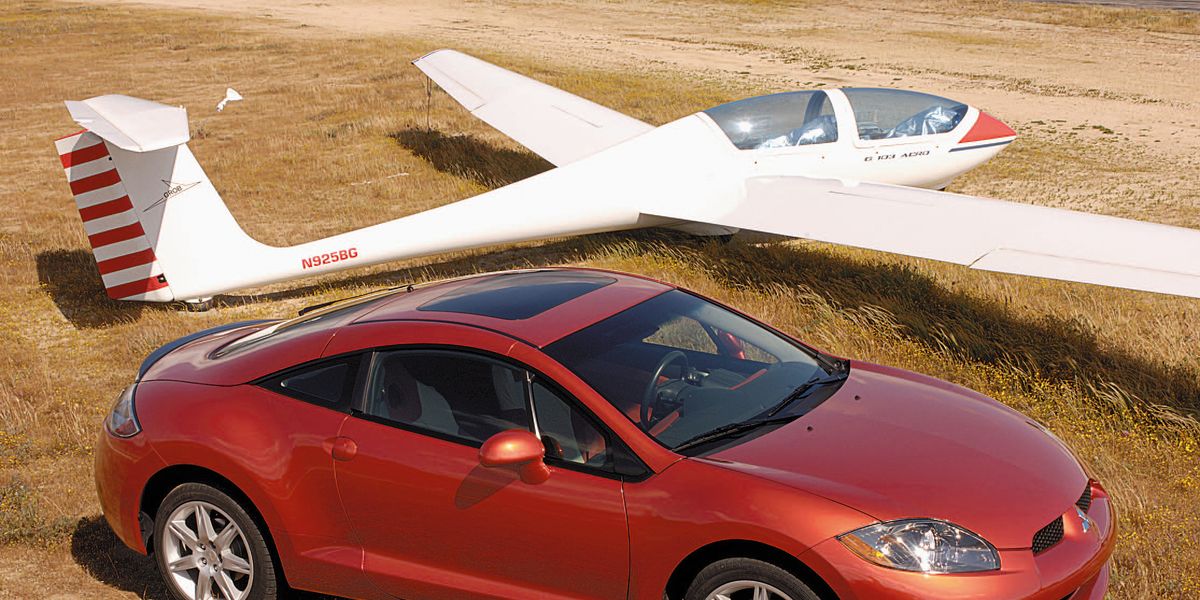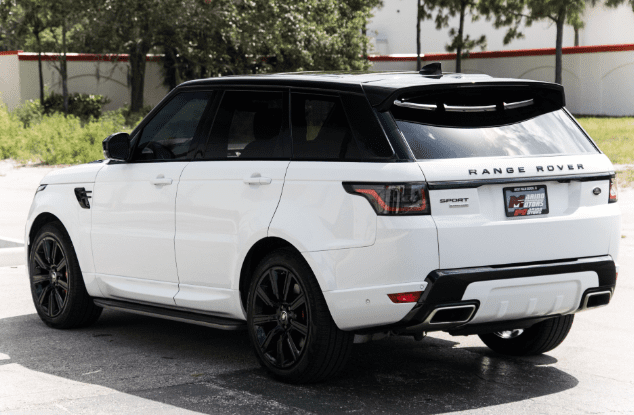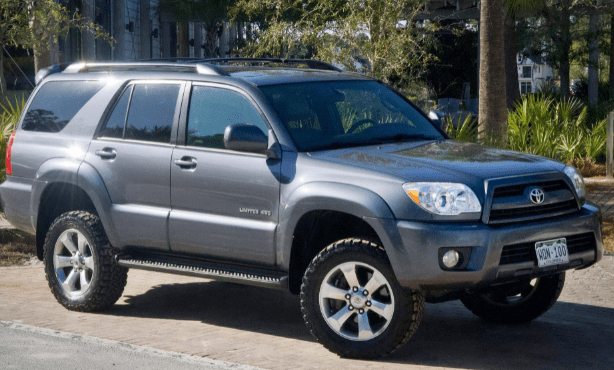(2004 Mitsubishi Eclipse) Transmission Problems/Repair Costs/Fluid Change
Last Updated on September 25, 2023 by Robert Wilson
The Mitsubishi Eclipse is a popular sports car that was first introduced in 1990. The 2004 model year saw some changes to the Eclipse, including an updated transmission. Unfortunately, this new transmission proved to be problematic for many owners and resulted in a number of recalls.
If you’re thinking about buying a used 2004 Eclipse, it’s important to be aware of the potential transmission problems that could occur.
If you’re having transmission problems with your 2004 Mitsubishi Eclipse, you’re not alone. Many drivers have reported issues with the automatic transmission, especially with regard to shifting gears. In some cases, the problem has been severe enough to cause the car to stall or even stop working altogether.
There are a few possible causes for these transmission problems. One is that the transmission fluid may need to be flushed and replaced. Another possibility is that there could be an issue with the sensors or solenoids in the transmission system.
Whatever the cause, it’s important to get your Eclipse checked out by a qualified mechanic as soon as possible to avoid further damage.
2003 eclipse gts shift solenoids replacements
What are the Most Common Transmission Problems?
There are a variety of transmission problems that can occur in your vehicle. The most common transmission problems include:
1. Leaking fluid – One of the most common issues is leaking fluid from the transmission.
This can be caused by a number of things, such as a damaged gasket or seal, worn bearings, or even just loose bolts. If your car is leaking fluid, it’s important to have it checked out as soon as possible as it can lead to further damage and ultimately failure of the transmission.
2. Shifting issues – Another common problem is shifting issues.
This can be due to a number of things including low fluid levels, worn parts, or incorrect adjustment. If you’re experiencing shifting issues, it’s important to have your car checked out by a professional to determine the cause and get it fixed before it leads to more serious problems.
3. Noisy operation – Another symptom of potential transmission problems is noisy operation.
This can be caused by a variety of things including loose components, damaged gears, or even something as simple as dirt and debris buildup in the system. If your car is making unusual noises while in gear, it’s important to have it looked at so the cause can be diagnosed and corrected before any major damage occurs.
Do Mitsubishi Eclipse Break down a Lot?
Mitsubishi Eclipse owners report that their vehicles break down a lot. In fact, the Mitsubishi Eclipse has been ranked as the most likely vehicle to experience a breakdown in the United States. The main reasons for this are the Eclipse’s poor reliability rating and its lack of safety features.
The Mitsubishi Eclipse is a sports car that was first introduced in 1989. Since then, it has undergone several redesigns, but it remains a popular choice among consumers looking for a stylish and affordable vehicle. However, while the Eclipse may be inexpensive to purchase, it can be quite expensive to maintain.
This is due in part to the fact that Mitsubishi parts can be difficult to find and often need to be ordered from overseas. In addition, Mitsubishi dealerships are few and far between, making it difficult to get repairs done in a timely manner.
If you’re considering purchasing an Eclipse, or if you already own one, be aware that you may have to deal with frequent breakdowns.
Be sure to budget for unexpected repairs and keep an eye out for common problems such as engine oil leaks and transmission issues.
What Kind of Transmission Does a Mitsubishi Eclipse Have?
Assuming you are referring to the 4th generation Mitsubishi Eclipse, it would have either a 5-speed manual or a 4-speed automatic transmission.
The F5M51 and W5M51 5-speed manuals were available with the 2.0 L DOHC Turbo I4 16 valve engine in both GS and GT models while the F4A51 and W4A51 4-speed autos were only available with the non-turbocharged 2.4 L SOHC I4 16 valve engine in GS models. The GT model was only ever made with a manual transmission regardless of engine choice.
The F5M42 and W5A42 5-speed manuals were standard on the RS trim level regardless of engine while the F4A42 and W6A42 6-speed autos were optional on all trims levels except for RS which could not be had with an automatic transmission at all.
The 3rd generation eclipse used a different naming scheme for their transmissions but they were very similar to those used in the 4th gen. The 3G eclipse used either a FS5W71B or WS6 Aisin 5 speed manual or an ATF44LE/AF21 4 speed auto behind their engines.
Are Mitsubishi Eclipses Reliable?
When it comes to Mitsubishi Eclipses, there is a lot of debate surrounding their reliability. Some people swear by them, while others have had nothing but bad experiences. So, what is the truth?
Are Mitsubishi Eclipses reliable?
Unfortunately, there is no simple answer to this question. It really depends on your individual experience with the vehicle.
Some people have had great luck with their Eclipse and haven’t had any major issues, while others have had constant problems.
If you’re considering purchasing an Eclipse, or if you already own one, it’s important to do your research and be prepared for potential issues that could arise. Here are some things to keep in mind:
-Eclipses are known for having electrical issues. This can range from something as minor as a blown fuse to more serious problems like engine fires. If you’re experiencing electrical issues with your Eclipse, it’s best to take it to a qualified mechanic or dealership for diagnosis and repair.
-Another common issue with Eclipses is engine oil leaks. These leaks can lead to serious engine damage if left unchecked, so it’s important to check your oil level regularly and top off as needed. If you notice an oil leak, take your car to a mechanic right away so they can fix the problem before it causes any further damage.
-Eclipses are also susceptible to transmission problems. If you notice that your car is slipping gears or having difficulty shifting into gear, it’s time for a trip to the mechanic. Transmission repairs can be expensive, so it’s best to catch the problem early on before it gets worse (and more expensive).

Credit: www.caranddriver.com
2003 Mitsubishi Eclipse Automatic Transmission Problems
The Mitsubishi Eclipse is a sporty two-door coupe that was produced from 1990 to 2012. The third generation Eclipse, which was produced from 2000 to 2005, is a popular vehicle among car enthusiasts. However, many owners of this generation Eclipse have reported having problems with the automatic transmission.
One common problem with the automatic transmission is that it can suddenly downshift into first gear while driving at high speeds. This can be very dangerous as it can cause the car to lose control. Another problem that has been reported is that the transmission may slip out of gear while driving.
This can also be dangerous as it can cause the car to lose power and stall in traffic. If you own a Mitsubishi Eclipse from the third generation, it is important to be aware of these potential transmission problems. If you experience any problems with your transmission, it is best to take your car to a qualified mechanic or dealership for service.
Most Common 2004 Mitsubishi Eclipse Transmission Failures

- Lack of Response
- Leaking Fluid
- Low Fluid
- Burning Smell
- Grinding or Shaking
- Gears Slipping
(2004 Mitsubishi Eclipse) Transmission Fluid Change (Video)
(2004 Mitsubishi Eclipse) Transmission OIL Change (Video)
Conclusion
If you’re driving a 2004 Mitsubishi Eclipse, you may be having transmission problems. The most common symptom is grinding when shifting gears, which can be caused by a few different things. First, the synchronizers may be worn out, causing the gears to grind against each other.
Second, the clutch may not be disengaging completely, also causing the gears to grind. Finally, the shifter cables may be damaged or corroded, preventing the shifter from moving properly. If you’re experiencing any of these symptoms, it’s best to take your car to a qualified mechanic for diagnosis and repair.


